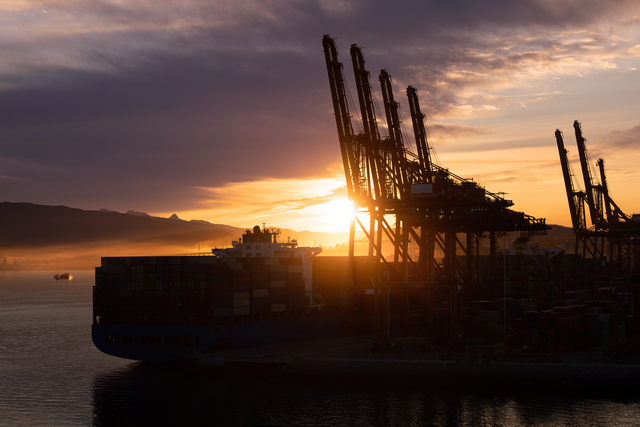
British Columbia’s port labor relations may soon be on the brink of transformation. A newly released Canadian Labor Ministry report urges a complete overhaul of the longshore bargaining process across Canada’s West Coast ports, citing years of disruption, inefficiencies, and overreliance on federal intervention.
The recommendations come in the wake of multiple high-profile labor disruptions, most notably the 13-day strike in 2023 that halted container traffic across Vancouver and other vital Canadian West Coast ports. The report, compiled by renowned labor experts Vincent Ready and Amanda Rogers, points to fragmented bargaining by local union chapters and inadequate coordination as root causes.
Unlike other longshore unions in Canada that bargain collectively on a provincial level, the International Longshore and Warehouse Union (ILWU) Canada is divided into five autonomous locals. While ILWU Canada is the umbrella organization, it lacks formal recognition as the primary negotiating body—leaving individual locals incontr ol of contract talks and strike actions.
This decentralized model has created significant friction, with the report stating that it has “contributed to the frequency oflabor disruptions.” It calls the existing labor relationship “mature but unhealthy,” marred by deep-seated mistrust, conflicting priorities, and union protectionism.
The solution? A province-wide bargaining framework that would unify contract negotiations under a single umbrella—whether that’s ILWU Canada or another centralized entity. The idea is not to strip local unions of their leadership or voices, but to bring cohesion and predictability to labor relations.
The report also recommends:
Even ILWU Local 514, which represents foremen and currently negotiates separate contracts with each employer, was not exempt from criticism. The report argues that foremen roles are not so distinctfrom general longshore workers that they require entirely separateagreements. In short: streamline everything.
Another key finding was the sector’s unhealthy reliance on federal arbitration. The report claims that this has created a“safety net” that undermines genuine collective bargaining. The proposed early involvement of mediators aims to mitigate this by resolving disputes before they escalate into full-blown strikes.
Mike Leonard, President of the British Columbia Maritime Employers Association (BCMEA), welcomed the report’s recommendations, saying it would “advance long-term stability at Canada’s West Coast ports.”
ILWU Canada has not yet publicly responded.
For shippers and forwarders moving goods through the Pacific Northwest, British Columbia ports are critical nodes in the global supply chain—especially for trans-Pacific and intermodal cargo moving to and from the U.S. Midwest.
Frequent labor disruptions not only delay cargo but raise costs,erode customer trust, and trigger re-routing to U.S. ports. A moreunified bargaining process could significantly improve portreliability, reduce strike risks, and enhance overall supply chainresilience.
Stay tuned with Worldtop & Metafor ongoing updates on labor policy shifts, trade trends, andlogistics innovations around the world.
Source:https://www.joc.com/article/bc-ports-longshore-unions-need-new-bargaining-process-report-6026105